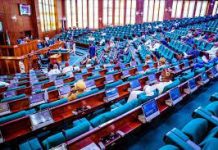By Cecilia Ologunagba
The Executive Director of Civil Society Legislative Advocacy Centre (CISLAC), Mr Auwa Rafsanjani says Nigeria has made some progress in achieving the Sustainable Development Goal (SDG) 16 by establishing beneficial ownership register.
Beneficial ownership, or the Ultimate Beneficial Owner (UBO), is when any natural person ultimately owns or controls a contracted counterparty or a natural person on whose behalf a transaction or activity is being conducted.
Rafsanjani disclosed this to newsmen after the launching of Nigeria’s SDG 16 (2023) Shadow Report in New York on the sidelines of the 78th session of the UN General Assembly.
The News Agency of Nigeria (NAN) reports that the report was presented to the First Lady of Nigeria, Mrs Oluremi Tinubu after its launching at the First Ladies High Level Forum.
“The aim of this report is to monitor and explore the progress within the agenda 2030 with the focus on the SDG 16 targets earlier mentioned (16.4; 16.5 and 16.10) which have been analysed in depth.”
Rafsanjani said the report showed that Nigeria had made progress in some areas, citing the establishment of beneficial ownership register.
“But we also have seen a lot of other areas that Nigeria needs to work very hard to achieve them. For example, in money laundry and illicit financial flow. This is a major problem in Africa and it has not actually stopped.
“So, we need to work together with our government to ensure that all the leakages around the issues of illicit financial flow are dealt with.
“Issues of access to information is one of the major challenges that we have in many countries in Africa and in Nigeria; we have Freedom of Information Law, but sometimes not really being respected by various institutions that are supposed to do that.
“And issues of whistleblowing that can help protect the whistleblowers is still hanging,’’ he said.
The official urged the governments, both in Nigeria and other African countries, to do the needful to ensure that they blocked all those leakages that continued to undermine sustainable development and also peace and stability on the continent.
“So, what we are saying that Nigeria needs to do more in order to achieve sustainable development goals, especially a goal 16, which talks about justice, talks about peace, which talks about anti-corruption.’’
Earlier in his remarks, Rafsanjani said CISLAC noted an improvement in two indicators in the report, saying those improvements could be seen in the policy area of Beneficial Ownership.
It is an open central register of beneficial ownership of Persons with Significant Control (PSC) was established on May 25, in line with the Companies and Allied Matters Act CAMA 2020.
“This is also in fulfilment of Nigeria’s commitment at the 2016 anti-corruption summit held in London.
“However, we would like to emphasise that it should not just stop at its establishment. It should go beyond this by ensuring that the relevant information of PSC is contained and updated.
“Notwithstanding, the lack of progress on other indicators can be ascribed to three major factors. First, there is a high level of corruption.
This can be reflected in the 2022 Corruption Perception Index (CPI) released globally by Transparency International where Nigeria scored 24 out of 100 points which is its worst since 2012 when the methodology of the CPI was reformed,’’ he said.
Sadly, Rafsanjani said Nigeria needed to do more as a nation to ensure that this trend didn’t continue, adding that in the just concluded elections, ant-corruption was not a major issue agenda when compared to previous elections and “this is disturbing”.
“Already, we have seen leadership appointment given to persons who have been fingered in corrupt acts nationally and internationally and this is very sad because it sends a wrong signal to the international community.
“There is also a need for independence of institutions. The principle of separation of powers as stipulated in our constitution needs to be respected.
“Court rulings should be respected and where individuals, government entities or other arms of government disagree, they should seek redress through constitutional means.
“This independence should also extend to the anti-graft agencies from their budgetary allocations to their appointment and removal of their heads. Due process should be followed always,’’ he said.
In a message to the event, West Africa Regional Coordinator for Transparency International, Samuel Kaninda, commended the CISLAC, also known as Transparency International Nigeria for annual launch of the report.
Kaninda said the launch of the report took place in the year where the world was halfway for the achievement of all SDGs 2030.
“That is, it makes it therefore critical for one to stop, take stock, look at achievements made and also challenges encountered and lessons to be drawn.
“So, I would want to congratulate our colleagues at CISLAC in Nigeria, for consistently working on producing this important shadow report,’’ he said.
According to him, it comes to complement and assess what the government has done so far in terms of delivering on its commitments on SDGs in general but SDG 16 in particular, and to look at ways to strengthen where weaknesses are identified to strengthen those areas.
It is also to keep accelerating progress so that Nigeria and Africa as a whole will not be left behind by the time 2030 is around the corner. (NAN)




